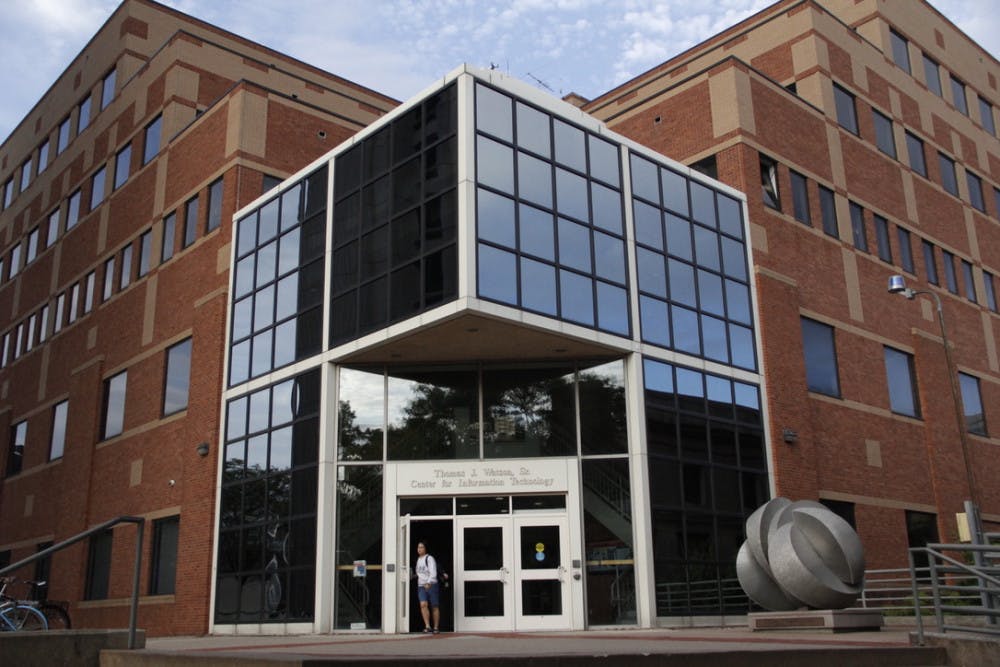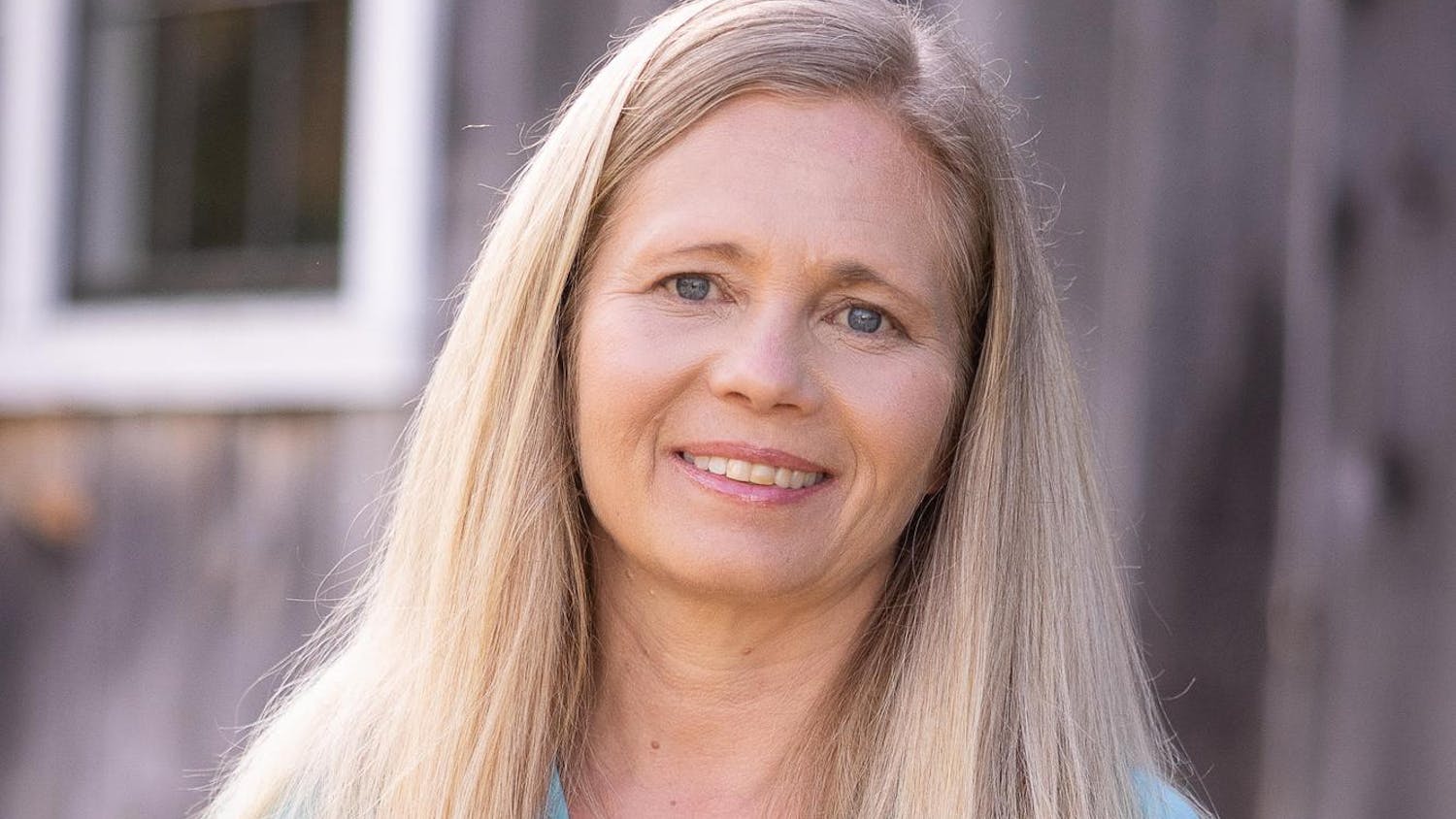Almost two years ago, as part of a “Responsible CS” initiative, the Ethics Teaching Assistant position was created. Now, the program — which has since been rebranded as the Socially Responsible Teaching Assistant — continues to expand and work toward integrating ethics and social impact into computer science courses.
Ethics represents a specific branch of philosophy and was too narrow in scope to accurately describe the mission of the TA position, which was rebranded in fall 2020, Head STA Lena Cohen ‘22 wrote in an email to The Herald. Moreover, Cohen noted that the program added PhD student Théo Lepage-Richer GS from the Modern Culture and Media Department as an advisor, and is working with other experts both in the social sciences and at the Sheridan Center for Teaching and Learning, Ugur Cetintemel, chair of the CS Department, wrote in an email to The Herald.
The program has also expanded and reorganized funding, which is allocated based on faculty member requests to obtain STA support for their courses, Cetintemel wrote.
The STA program is part of a relatively young field at both Brown and other universities, which makes working as part of the program more challenging, said Shira Abramovich ’21, who has already served as an STA for two courses and is currently an STA for CSCI0150: “Introduction to Object-Oriented Programming and Computer Science”
After an injury that kept her away from computer science for nearly a year, Abramovich was hesitant about reentering the field. Her return coincided with Facebook’s Cambridge Analytica scandal, and she was uncertain how Brown’s own department would deal with similar issues of ethics in technology. “I felt like the department at the time wasn’t doing enough to talk about and prepare students for that reality,” she said.
“I saw this opportunity to make some change and make people who have the same concerns that I had felt that there was some place for their critique in CS,” Abramovich said.
STAs have faced various obstacles in the nascent program. For example, students tend to dismiss STAs if assignment questions, which students might be asked to answer after completing a coding project, aren’t framed correctly, noted Nick Young ’23, previously an STA for CSCI0190: “An Accelerated Introduction to Computer Science” and currently an STA for CSCI0320: “Introduction to Software Engineering.”
So that STAs don’t increase the already heavy workload of classes, assignments are only added onto pre-existing homeworks and projects, according to Jenny Tan ’23, an STA of CSCI0300: “Fundamentals of Computer Systems.” The assignments strike a balance between ensuring students are able to think about the topics thoughtfully and not detracting too much from the technical aspects of the work, Tan said.
Abramovich emphasized that having conversations with head TAs and professors is especially important in balancing course workloads for students and negotiating where there is room to add content.
“By iterating and (participating in the STA program) more, we now have a lot more guidelines. We have a lot more structure. We have more trust from the professors that we work with, and there is starting to be more support from the department,” Abramovich added.
Young hopes that the STA program can expand to become more accessible to people of all backgrounds.
Tan added that she aspires for the program’s mission to become integrated with the content of courses to the point that social responsibility in computer science won’t even need a separate program — a process that she acknowledges will take time.
Abramovich also hopes that more resources will become available to support STAs. “There is still a huge amount of room for improvement, and this might not even be the best way to approach ethics and computer science,” Abramovich said. She hopes that training for STAs will broaden to discuss social issues of larger scope.
According to Cetintemel, the CS department has also planned other ventures adjacent to the STA program, including specialized courses such as CSCI1951-I: “CS for Social Change”, CSCI2952-V: “Algorithms for the People”, CSCI1870: “Cybersecurity Ethics” and DATA0080: “Data, Ethics and Society.”
The department is working to prioritize social impact through a variety of avenues. For instance, they support independent studies enabling students to work on projects focusing on societal impact, usually in conjunction with local nonprofit organizations and are a part of the Swearer Center’s Engaged Scholars Program.
“It is important for us to always think critically about the use and users of our solutions, and develop a defensive mind-set that can reason about the potential misuse and abuse of our choices,” Cetintemel wrote. “As a complement to this ‘do no harm’ principle, we also encourage thinking about how we can positively use our skills and knowledge to ‘do good,’ to use technology to advance our society and humanistic goals such as privacy, equity, civil liberties and positive community impact.”
Young believes that the STA program can have an impact beyond Brown’s computer science department. “There are not a lot of people around doing this work and it’s important work that needs to be done,” Young said. “A lot of times people that go in and out of computer science programs, what they end up forgetting is that their code really does impact the real world. No matter how deep in the weeds you are, there is always some connection to the broader world at large.”

ADVERTISEMENT




